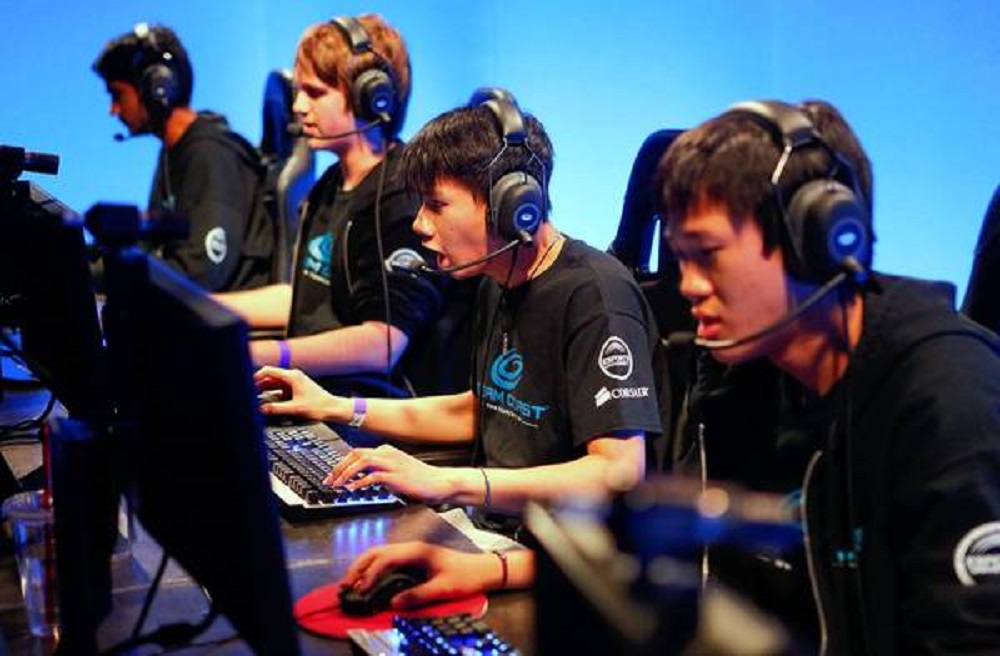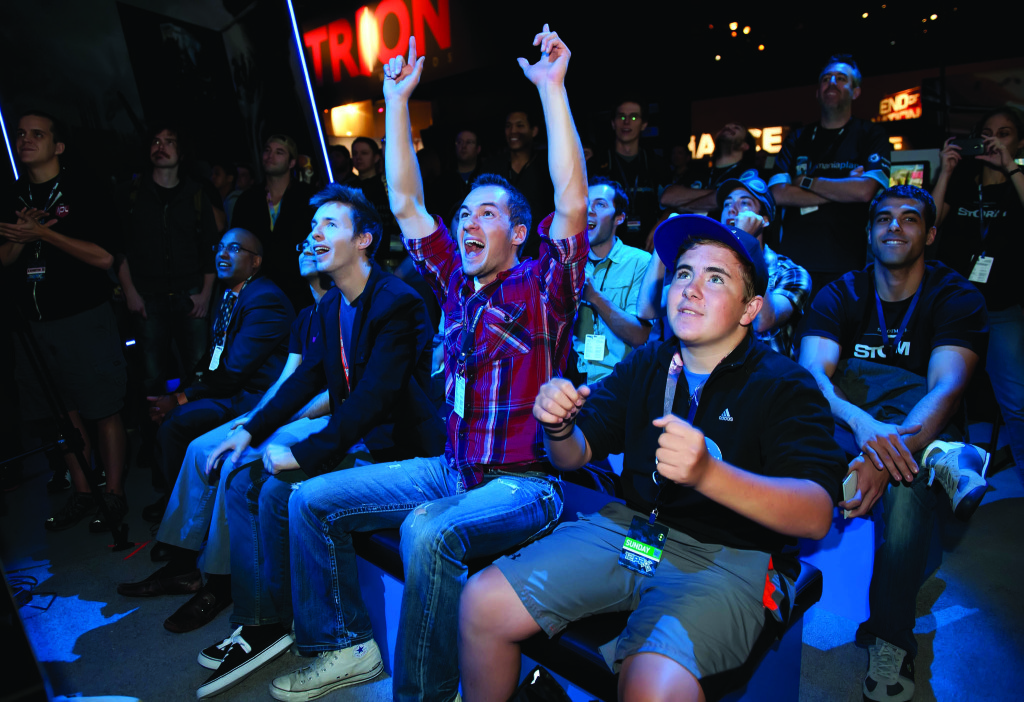While the State Department has recognized League of Legends players as athletes, Robert Morris University plans to give out scholarships to their LoL team, and ESPN teamed up with the X-Games this year to host an MLG Invitational. Gaming still faces an uphill battle in most regards when trying to legitimize it’s professional players as “athletes”. Is it really a sport? Are competitive gamers really “athletes”?
First, it’s necessary to define both “sport” and “athlete”. According to Webster’s Online Dictionary, the noun “sport” means “a contest or game in which people do certain physical activities according to a specific set of rules and compete against each other” or “a physical activity (such as hunting, fishing, running, swimming, etc.) that is done for enjoyment”. Note the emphasis on “physical”. Oxford dictionaries online also defines it as “An activity involving physical exertion and skill in which an individual or team competes against another or others for entertainment.”
So when people make the argument that gaming is not “physical” and therefore not a sport, there is some merit to that argument. The definition, as stated, would turn any counter argument along the same lines impossible. It is what it is. Gaming makes use of the mental faculty of its athletes and that alone. However, that isn’t the only thing that makes a sport. Note that the Oxford Dictionary identifies that sport also involves “skill”, something that is required in copious amounts to be a professional gamer.
So, as far as tangible defining is concerned, gaming goes one for two. It involves having skills for sure, but it lacks in the physical element that is present in literal definitions of what a “sport” is. However, textbook definitions aren’t the only things that make a “sport” a “sport”. Intangibles can often tell us more than a cursory analysis. Fandom and entertainment value also play a part.
Every sport is also defined by its fans, the lifeblood of every sport on the planet. Sports themselves wouldn’t exist as a profitable venture if it were not for the legions of fans who pay to show up and cheer their favorite teams on. It’s the fans, not the logos, that make Manchester United and the Dallas Cowboys two of the world’s most lucrative sports teams. The fans also shape a team’s identity. Team culture often revolves around fans.The Pittsburgh Steelers are known for the towels that their blue-collar fans wave during games. The Los Angeles Lakers, conversely, are known for having Hollywood’s biggest stars sit court side. Soccer fans around the world are often known for their unique chants and songs during matches. All of these various activities by fans help shape the identity of the teams as much as their actual play. This makes certain teams “over-powerful villains” (Los Angeles Lakers and New York Yankees), lovable losers (Jacksonville Jaguars and Chicago Cubs), “historical” franchises (Boston Celtics and Montreal Canadiens), and everything in between (the New York Knicks).
Gaming compares very favorably as a sport in the fan comparison. The Staples Center packed in 12,000 fans to see the 2013 League of Legends Championship and Major League Gaming routinely draws tens of thousands of fans to it’s live events. Riot games is expecting 40-50,000 people to attend the League of Legends World Cup in Seoul, South Korea this year. Different esports leagues even have their versions of “villains” and other team identities. Optic Gaming in the Call of Duty circuit fits the “villain” bill nicely. Esports is not hurting for fans or team culture.
Sports also has entertainment value. Even in their earliest incarnations sports always turned into spectacles. In ancient Greece, most of the games played in the Olympics (wrestling, discus, etc.) were originally designed as military training methods. Chariots almost from their inception turned from being just instruments of war or the hunt into being racing vehicles. The Romans were the originators modern sports as we recognize them. Their amphitheaters (precursors to today’s soccer and football stadiums) housed gladiatorial combat, battle re-enactments (complete with real blood!), and more traditional Olympic style games. While their chariot race tracks, known as Circuses (evolved from the earlier Greek hippodromes), were the descendants of today’s car tracks. Thousands filled the seats to watch these events and no expense was spared to provide ever greater spectacles.
Modern sports are mammoth in scope. Literally millions of people either attend in person or watch their favorite teams play. The Super Bowl is the most-watched television event annually in the United States, while the FIFA World Cup and the Olympics draw hundreds of millions, if not billions of viewers. People of all races, nationalities, and walks of life love watching sports. Downtown areas in many cities nearly shut down when the home team is playing.
The point is that people enjoy watching sports. Video games, at first, seem to not fit. Who would want to watch someone else play a video game? However, this is far from the truth. South Korea has it’s own channels on television dedicated to Starcraft and other games. Youtube is full of thousands of channels dedicated to watching “Let’s Plays” and competitive matches. Twitch has evolved into near network status globally for streaming live competitive and individual gaming, with 45 million viewers watching 12 billion minutes of video from 6 million broadcasts. Video games are not only drawing viewers, but their drawing them in startling numbers.
So the numbers are there. The passion and the following are there. The lack of the physical exertion is going to be a hangup for people and esports in general is fighting the same stereotypes that gaming in general does, but esports is making a strong case to be considered among the “real” sports. It seems to be only a matter of time before it achieves the recognition that it so desperately desires. The chance of it butting into the realm of mainstream sports, like live updates on LoL qualifiers on the morning Sportscenter, are slim or far in the future. E-Sports by its very nature will always be “niche programming”. However, esports has come far along the path of maturity and is getting closer to the moment of legitimacy.


